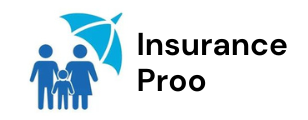Cyber Liability insurance for small businesses in the USA

In today’s digital age where small businesses face an increasing number of cyber threats, making cyber liability insurance an essential component of their risk management strategy. This insurance provides coverage against various cyber-related risks, which include data breaches, cyberattacks, and other online threats. As small businesses that often lack the resources to implement comprehensive cybersecurity measures, understanding the importance and benefits of cyber liability insurance is critical.
What is Cyber Liability Insurance?
Cyber liability insurance is a specialized insurance product that is designed to protect businesses from the financial repercussions of cyber incidents. It covers a range of expenditures associated with data breaches and cyberattacks, which include legal fees, notification costs, and potential settlements. This type of insurance is particularly important for small businesses, which may not have the financial reserves to absorb the costs of cyber incidents.
Why Small Businesses Need Cyber Liability Insurance?

- Increasing Cyber Threats: Small businesses are increasingly targeted by cybercriminals due to their often weaker security measures. According to recent studies where a significant percentage of cyberattacks are directed at small businesses.
- Data Breaches: With the rise in data breaches where small businesses must be prepared for the potential fallout. A data breach can lead to loss of customer trust, reputational damage, and also significant financial losses.
- Regulatory Compliance: Many states have accepted laws requiring businesses to protect customer data. These Cyber liability Insurances can help businesses comply with these regulations and cover the costs associated with legal penalties.
- Third Party Claims: If a cyber incident affects clients or partners which small businesses may face lawsuits. These Cyber liability insurance can cover legal fees and settlements related to third-party claims.
- Business continuity: Cyber incidents may disrupt business operations. These Insurances can help cover the costs of recovery and also ensure that businesses can continue operating after an incident.
Key Coverage Areas are as follows

Cyber liability insurance typically includes several key coverage areas are as follows:
- Data Breach Response: Coverage for costs associated with responding to a data breach which are inclusive of legal fees, notification costs, and also credit monitoring services for affected individuals.
- Network Security Liability: The Protection against claims arising from failures in network security likewise unauthorized access to data or transmission of malware.
- Business Interruption: Coverage for lost income and extra expenditures incurred due to a cyber incident that disrupts business operations.
- Media Liability: Protection against claims related to online content are inclusive of copyright infringement, defamation, and privacy violations.
- Cyber Extortion: Coverage for expenditures related to ransomware attacks, which are inclusive of payments to cybercriminals and costs associated with recovering data.
The Factors Affecting Cyber Liability Insurance are as follows

Several factors influence the cost of cyber liability insurance premiums for small businesses, such as :
- Business Size and Revenue: Larger Businesses or those with higher revenues may face higher premiums due to increased risk exposure.
- Industry Types: Certain industries likewise healthcare and finance which may have higher premiums due to the sensitive nature of the data they handle.
- Security Measures: These Businesses that implement robust cybersecurity measures way qualify for lower premiums. Insurers often assess the security protocols in place, likewise firewalls, encryption, and employee training.
- Claims History: A history of previous cyber incidents, which can lead to higher premiums, as insurers may view the business as highly risky.
- Coverage Limits: The amount of coverage a business chooses will directly impact the premium. These Higher coverage limits typically result in higher premiums.
Choosing the Right Cyber Liability Insurance is as follows

When selecting cyber liability insurance policies, these small businesses should consider the following steps as follows:
- Assess Risks: They evaluate the specific cyber risks faced by the business, which includes the types of data handled and potential vulnerabilities.
- Compare Policies: Let’s obtain quotes from multiple insurers and also compare coverage options, limits, and exclusions.
- Understand Exclusions: Carefully review the policy for any exclusions that may limit coverage, likewise acts of war or intentional misconduct.
- Consult with Experts: Theyconsiderr working with an insurance broker who specializes in cyber liability insurance in order to navigate the complexities of coverage options.
- Regularly Review Coverage: As the business grows and cyber threats evolve, regularly review and update the insurance policies to ensure adequate coverage.
Last but not least, after the thorough review is mentioned below is as follows
Cyber liability insurance is a critical safeguard for small businesses in the USA after providing essential protection against the financial impact of cyber incidents. With the increasing familiarity of cyber threats, investing in this insurance can help businesses mitigate risks, comply with regulations, and ensure business continuity. By interpreting the coverage options and factors affecting premiums
[“Premium” means the amount of money that you pay regularly to a company for insurance against accidents, damage, etc.], small businesses can make informed decisions to protect themselves in an ever-evolving digital landscape.
By prioritizing cyber liability insurance where small businesses can better guide the complexities of the digital world and safeguard their operations against potential cyber threats. Cyber threats are malicious acts that target computer systems and networks to damage, disrupt, or steal data or systems. These threats can take various forms which including malware, ransomware, phishing, and denial-of-service (DoS) attacks. They originate from various sources, likewise individual hackers, organized crime groups, and even nation-state actors. I’m here for any Follow-up Questions.











